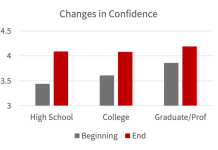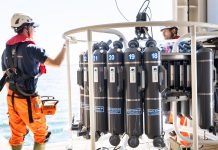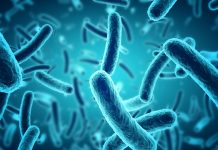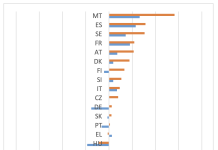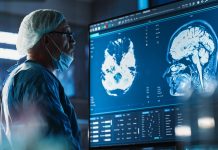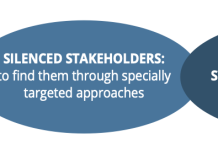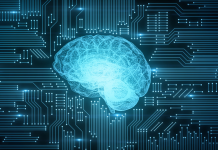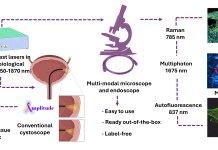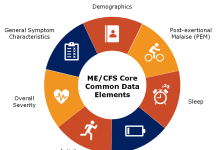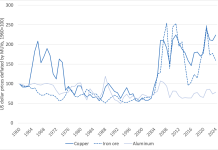Open Access Government produces compelling and informative news, publications, eBooks, and academic research articles for the public and private sector looking at health, diseases & conditions, workplace, research & innovation, digital transformation, government policy, environment, agriculture, energy, transport and more.
Home 2025
Archives
Decolonizing education in an era of neo-imperialism
Geraldine Balzer, an Associate Professor at the College of Education, University of Saskatchewan, discusses the importance of decolonizing education in a time of neo-imperialism.
Driving innovation in additive manufacturing: Enhancing efficiency and certification
Ana Queirós Barbosa(1) and Christina Moeslund Zeuthen(2), explore driving innovation in additive manufacturing, explaining precisely how DILAPRO enhances efficiency and certification.
The history of bird photography: What can it teach us?
The research of Karla McManus, Associate Professor at the University of Regina, explores the history of bird photography and discusses its lessons, including the evolving technology of photography and the printing press.
Phase change materials for reconfigurable photonic integrated circuits
Pierre Noé, Benoît Cluzel, Stéphane Malhouitre, and Benoît Charbonnier, discuss phase change materials for reconfigurable photonic integrated circuits.
How can community partnerships improve early math learning?
Ellen Rydell Altermatt and Andrea K. Rorrer discuss how community partnerships can enhance early math learning.
Securing the Baltic Sea’s built seascapes: Balancing innovation, security, and sustainability
Karina Barquet, Hans Liwång, and Torsten Linders explore how the Baltic Sea is evolving into a ‘built seascape.’ They highlight the necessity for cooperation and security strategies, alongside renewable energy and improved digital connectivity developments, to harmonize innovation with environmental protection.
Microbiomes should be incorporated into The One Health Joint Plan of Action
The One Health Joint Plan of Action was created by major international organizations to tackle global health issues related to human, animal, plant, and environmental health. This article emphasizes the importance of integrating microbiomes into this framework to enhance health systems and prevention strategies.
Quantitative reasoning in higher education: The 5C Model
Quantitative reasoning enhances and lengthens lives. Professor Gregory Foley of Ohio University discusses how his team is improving QR instruction in U.S. higher education.
PREMIUM_EU: Unlocking regional growth through strategic interregional mobility policies
Interregional mobility, involving the movement of people between regions, significantly shapes regional economic and social landscapes in Europe. The PREMIUM_EU project seeks to explore this and provide policy recommendations.
Ultrasound neuromodulation for treatment-resistant depression: A case for deep brain stimulation
Tiago Costa from Delft University of Technology discusses why ultrasound neuromodulation has significant potential to transform the treatment of depression.
Identifying potential exercise mediators
Dr Robert Wessells and his team at Wayne State University are researching exercise mediators and mimetics in fruit flies (Drosophila melanogaster) to explore how to provide the benefits of exercise to individuals who are unable to access it. Here, he shares what he has discovered during his research.
Physics: Quarks and Gluons explained
Professor Claudia Ratti from the Physics Department at the University of Houston explains the essential information about quarks and gluons, including the so-called Quark-Gluon Plasma, plus Quantum Chromodynamics.
Silent stakeholders in regulatory policy
In this first of a four-part series, Kati Rantala from the Faculty of Social Sciences at the University of Helsinki examines silent stakeholders in regulatory policy – identifying who they are, explaining their significance, and exploring ways to enhance their involvement.
Programmable iontronic neural networks
Guo-Xing Miao, Professor at the University of Waterloo, guides us through programmable iontronic neural networks.
Human history: Handshaking symbolism
Penelope J. Corfield from Royal Holloway, University of London, explores the symbolism of handshaking throughout human history.
Strengthening urban governance for inclusive and effective nature-based solutions
McKenna Davis, Senior Fellow and Coordinator of Nature-based Solutions at the Ecologic Institute, discusses the importance of strengthening urban governance to enhance the uptake and inclusiveness of nature-based solutions.
Novel imaging platform for early and precise cancer diagnosis
Regina Gumenyuk, Adjunct Professor at Tampere University, is exploring a novel imaging platform for early and precise cancer diagnosis. Read more about this exciting innovation here.
Common data elements to advance ME/CFS research
Standardizing data collection in ME/CFS research through Common Data Elements is a crucial step toward improving diagnosis, advancing treatments, and fostering collaboration across studies to accelerate progress in understanding this complex disease.
How climate extremes are endangering millions in Africa
Alain Tamoffo, Postdoctoral Researcher at the Climate Service Center Germany (GERICS), Helmholtz-Zentrum Hereon, discusses how climate extremes are endangering millions in Africa.
Metal price cycles, including copper, aluminum, and cobalt
Read this analysis of metal price cycles, including copper, aluminum, lithium and cobalt, featuring insights from Christopher Gilbert of Biena Consulting Srl. It also addresses the significant increase in metals demand from China between 2003 and around 2012.





